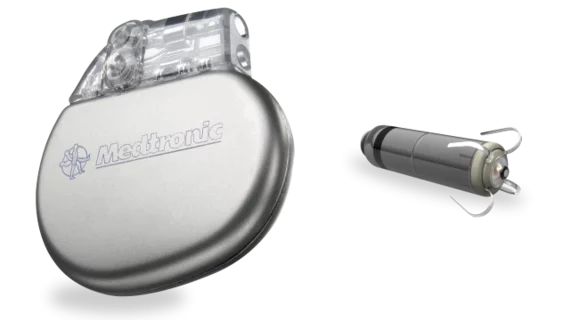Medtronic’s Micra Transcatheter Pacing System (TPS) demonstrated a major complication rate of 2.7 percent through one year, according to data from a post-approval registry that will be presented May 10 at the Heart Rhythm Society’s annual scientific sessions in Boston.
The analysis included 1,817 patients from 179 centers in 23 countries. The Micra TPS—the smallest pacemaker in the world and the only leadless model approved in the U.S.—was implanted successfully 99.1 percent of the time.
According to a Medtronic press release, the observed 12-month rate for procedural or system-based complications was 29 percent lower in the post-approval registry than in the investigational study of the device.
"The results from the post-approval registry are consistent with the positive outcomes reported with previous Micra TPS data," Mikhael El-Chami, MD, director of electrophysiology at Emory Midtown and associate professor of medicine at Emory University School of Medicine in Atlanta, said in the release. "The high implant success and low major complication rates in a real-world patient population with new Micra implanters reinforce the safety and performance of the Micra TPS."
The registry included 99 patients who had a previous device removed because of infection. All but one of these patients had the Micra TPS successfully implanted and none experienced subsequent infections requiring device extraction.
According to Medtronic, the device is the size of a large vitamin—about 10 times smaller than a traditional pacemaker. It is attached to the heart with small tines and can deliver shocks through an electrode at the end of the body.
"By eliminating the need for leads and a subcutaneous pocket, miniaturized leadless pacemakers are associated with a low-risk of device-related infection," El-Chami said. "These new data show that this novel technology may provide a safe option for patients with prior device-related infections."

